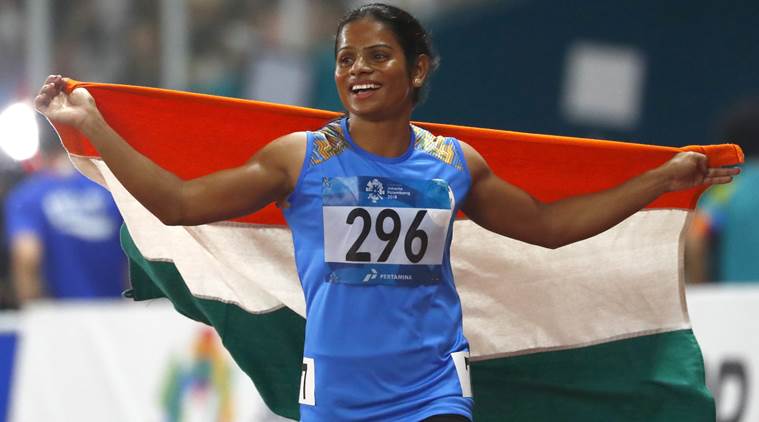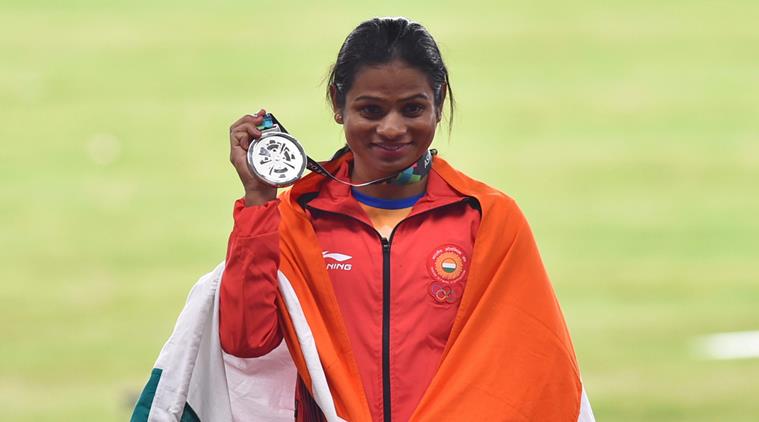
IN MY 20-plus years as an athlete and administrator, I have seen Indian sport evolve in many aspects. We have made giant strides in producing world beaters, taking help from some of the best experts and using cutting-edge technology. However, one of the areas in which we have made little progress is our mindset. Homophobia is deeply entrenched in Indian sport, be it in the form of slurs chanted during matches or within the overall sporting ecosystem, which isn’t friendly towards LGBTQ people.
In this context, sprint star Dutee Chand’s declaration last Sunday that she is in a same-sex relationship is a watershed moment in Indian sport. When I read her interview, my first reaction was that of being surprised because no one in India had expressed this before. But soon, that feeling turned into a sense of immense pride.
My thoughts immediately went to the courage it would have taken for her to come out in a largely conservative society like ours. We are talking about a young athlete from a remote village in Odisha — not someone who, one supposes, may have a support group to deal with the fallout.
This isn’t to suggest that Indians living in big cities are all open-minded. I grew up playing in Mumbai, where there is a culture of belittling anyone who isn’t ‘macho’ enough. Words like pansy are casually thrown around… I don’t want to cite specific examples but I can tell you that if a player is sensitive or seemingly unmanly, homophobic slurs are often directed at him by his teammates and others. Which is to say, being gay is not okay. So imagine a player whose sexual orientation is actually that, how will such a player ever have the courage to come out? Homosexuality is wrongly equated as a weakness while playing sport is anything but.
Read | ‘I’m so proud of her’: Ellen Degeneres on Dutee Chand coming out
One also needs to understand that being gay has nothing to do with machismo — for instance, there are rugby players, considered to be among the toughest athletes, who have come out of the closet. I can’t speak for women and the kind of challenges they face, but I believe this kind of toxic atmosphere exists for them, too. The sporting community, after all, is a part of the society and, despite the Supreme Court ruling decriminalising homosexuality, there is a stigma attached to it.

It is unfortunate that not many from the sporting fraternity have publicly backed Dutee. And I hope that will change in the days to come.
So for Dutee to have spoken about this is admirable and must be supported wholeheartedly. Dutee is using her status to give so many like her who live in deeply conservative societies and communities the reassurance that there is nothing ‘wrong’ with them. That they are not committing a crime. And she did it by putting herself at great risk.
Read | Dutee Chand: Hope everyone continues to support me… good to know there’s acceptance
American tennis legend Billie Jean King, one of the first female athletes to come out as gay in the early 1980s, has often spoken of the difficulties she had to face back then since she had no allies and because of the shame associated with it. One would have imagined that after so many decades, it would have become relatively easier for athletes to come out. Alas, it still isn’t the case. Sport is often talked about as being a great leveller — your ethnicity, socioeconomic status and the geographical background becomes secondary when you are on the field. Similarly, we should strive to ensure that a person’s sexual orientation does not matter. We can’t be encouraging or exhibiting homophobic attitudes.
I have always maintained that for any sport to become more accessible and inclusive, it needs an icon. Dutee is a trailblazer and an icon that Indian sport desperately needed. I hope her declaration will give courage to other queer athletes, who fear publicly identifying as such. But that will only happen if they see that Dutee doesn’t pay too big a price — and that will depend on us. We need to ensure she gets the support she deserves. She will undoubtedly face resistance from some quarters but the moral support extended to her should outweigh that.
The clarity and courage with which Dutee spoke has the potential to change our attitude and bring in more acceptance. One of the things she said has stayed with me — “everybody should have the freedom to love.” Why is that so difficult for people to understand?
(The writer is former captain of the Indian hockey team and CEO of Olympic Gold Quest)